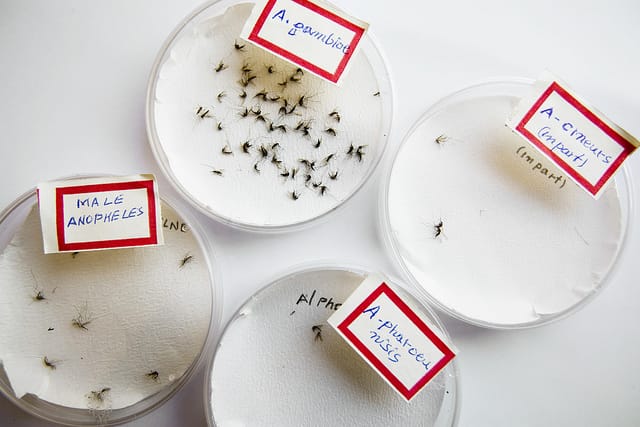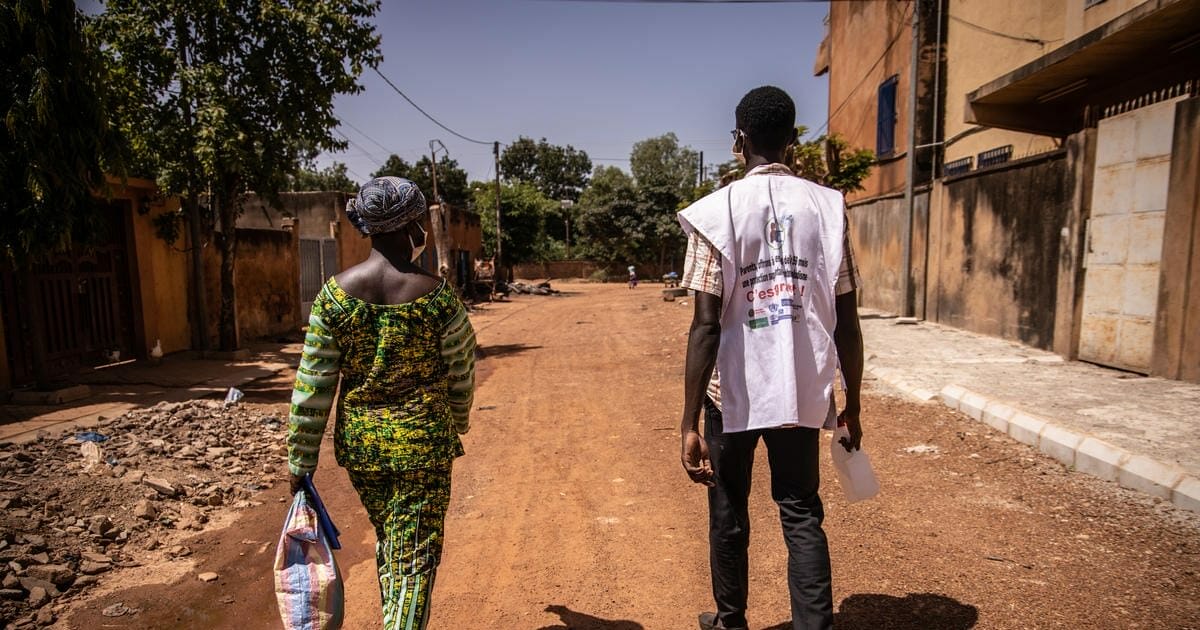Management
To provide the necessary approaches, tools, and information to manage the whole mechanism.
As a publicly funded instrument, L’Initiative is accountable to its supervising authority, to the Global Fund, and to citizens. We are, therefore, committed to monitoring and evaluating our activities, capitalizing on knowledge, and sharing best practices.
We are continuously fine-tuning our expertise and building a valuable body of data and knowledge. We then share these analyses and lessons learned with our ecosystem to foster quality interventions and inform global health strategies. This ecosystem includes project initiators and beneficiaries of our expertise, authorities in eligible countries, experts, members of Team France, and counterparts within the Global Fund.
Since it was founded, L’Initiative has implemented a continuous process to evaluate our activities and monitor our performance indicators. This process uses various approaches and monitoring and evaluation tools to analyze, measure, and understand the implementation, results, and impact of our interventions, to learn lessons and to identify best practices.
Improving our accountability and performance-based monitoring
Since 2021, we have defined new performance indicators. This provides us with a regular flow of information on the results achieved, the relevance of the resources used, and changes in project-related risks. We can, therefore, measure the impact of our interventions as precisely as possible.
Supporting and encouraging learning
As demand increases for learning based on project skills and Technical Assistance (TA), capitalization is a productive approach to drawing lessons and formalizing the knowledge acquired from experience (activities, projects, TA, partnerships, etc.), then sharing this knowledge and making it available to others. At L’Initiative, we adapt this approach to each project’s specific challenges and to the capabilities and motivations of the project initiators or TA beneficiaries. We apply this approach at all levels, including individuals, projects, and organizations. To address these needs and challenges, we have strengthened and diversified our monitoring, evaluation, and capitalization mechanism over the years. It is now based on our MEAL strategy (Monitoring, Evaluation, Accountability, Learning) and a multidisciplinary team that fulfills our need for precise, reliable, and shared learning, monitoring, and evidence.
Our MEAL strategy strives to achieve three goals
To provide the necessary approaches, tools, and information to manage the whole mechanism.
To meet our accountability obligations toward our supervising authority, governance, beneficiaries, Parliament, citizens.
To produce, promote, and distribute knowledge capital, in order to stimulate learning and capitalize in knowledge.
To ensure that our interventions run smoothly and to adjust our activities as necessary, interim evaluations are carried out on the vast majority of our projects. Each project is evaluated by external experts upon completion. In addition, cross-cutting evaluations are conducted on clusters of projects or geographic areas to enable an overall analysis of final evaluations and thus extract knowledge on specific themes.
As part of our approach to ensure accountability and share best practices, we publish evaluation overviews to highlight key results and recommendations.
Moreover, L’Initiative carries out enhanced monitoring and evaluation of the technical expertise that it provides. Qualitative and quantitative methods are used to measure and evaluate the results and lessons learned from Technical Assistance (TA). In addition, certain enhanced or specific support mechanisms may be evaluated or reviewed according to the issues and needs expressed.
Drawing on the experience accrued since its creation, L’Initiative has built up an extensive body of knowledge on the implementation of Global Fund grants. Producing knowledge and drawing lessons from our experience and activities over the years—as part of our ongoing learning approach—allows us to guide and oversee interventions and operational tools to improve their quality and contribute to strategies and advocacy with our partners.
This knowledge capital is derived from evaluation reports on funded projects, data extraction, ad hoc surveys, and capitalization procedures. All this data is regularly included in publications that feature best practices and recommendations, with a view to consolidating health systems, reaching vulnerable populations, and improving operational research. To this end, L’Initiative publishes Policy Briefs, Key Data and Guides for civil society organizations, like the guide on capacity building.

Shedding light on intervention strategies to fight malaria
L’Initiative has produced a policy brief to provide our partners with key information to understand and reflect on the role played by seasonal malaria chemoprevention in reducing malaria mortality among infants and young children. We also provided insight and analysis following the WHO recommendation on the first malaria vaccine for children. Such resources contribute to the debate on the challenges to be met to ensure these tools are optimized in the future.

Presenting key data on our activities: L’Initiative and NGOs
In its “Key Data” series, L’Initiative highlights its support to non-governmental organizations. This short publication provides a precise, concise overview of our partnership with NGOs. It emphasizes our growing commitment to local community organizations: between 2017 and 2022, the budget allocated by L’Initiative to projects initiated by local NGOs increased by a factor of 2.8.
L’Initiative is committed to publicizing and promoting the lessons learned from its evaluations, data, and capitalization initiatives. This approach seeks to inspire strategies to fight pandemics, transfer knowledge and transform it into public policies, and continuously improve our interventions. It aims to improve accountability, sharing, and learning, benefiting both Team France and the entire Global Fund ecosystem.
For example, we actively participate in forums (such as FIFE every two years) and conferences (ICASA, AFRAVIH, etc.) to share evaluation results, methods, and approaches. We make our publications available to all our partners through a digital library on our website. This library allows everyone to access our resources, with the aim of building capacity and sharing knowledge.